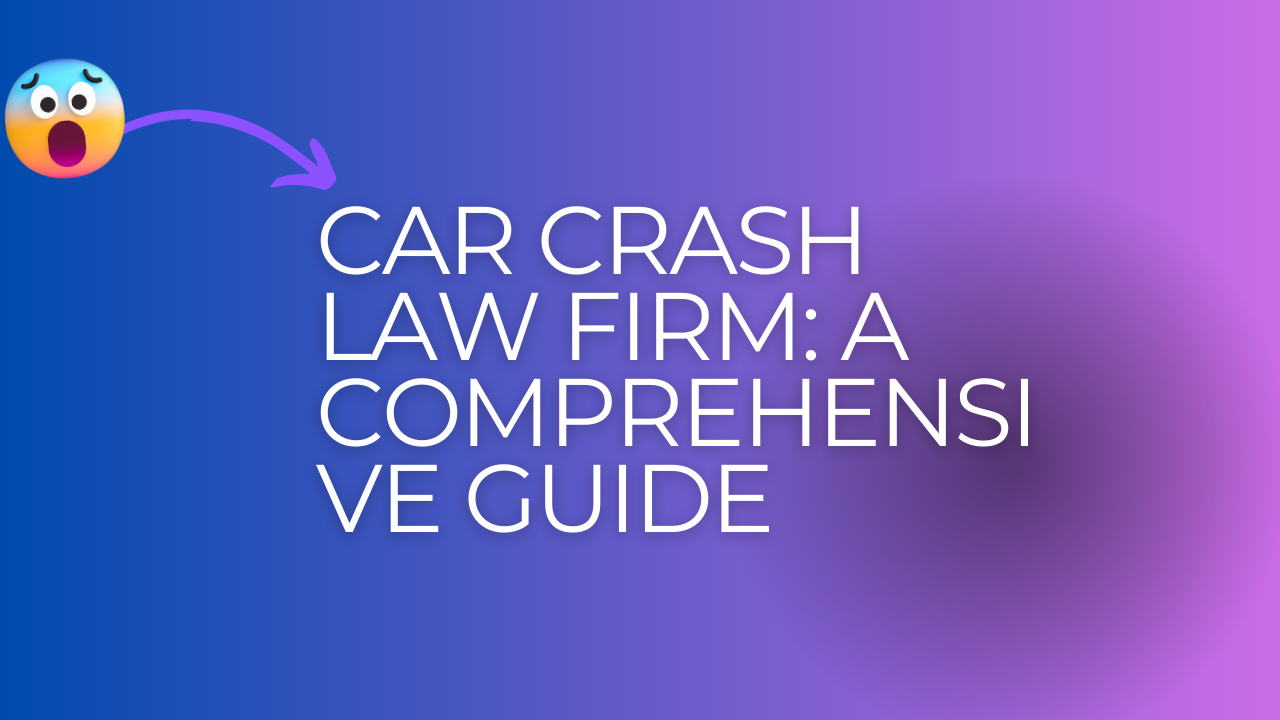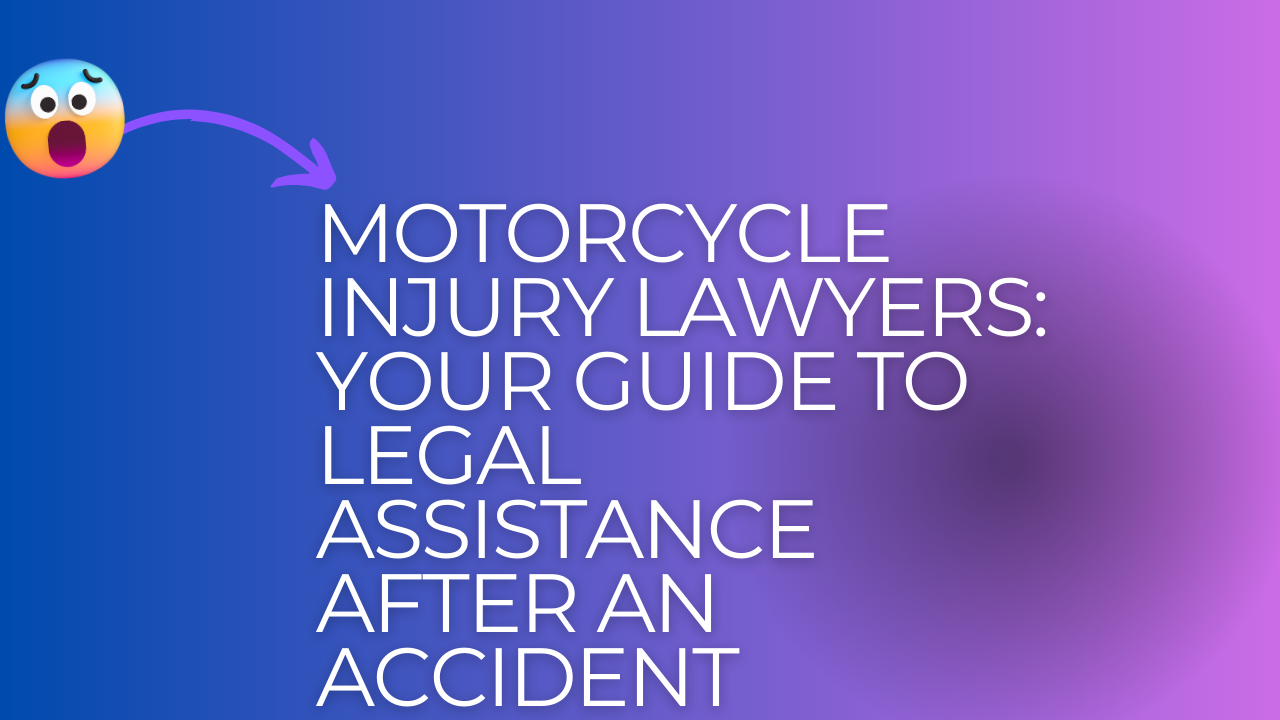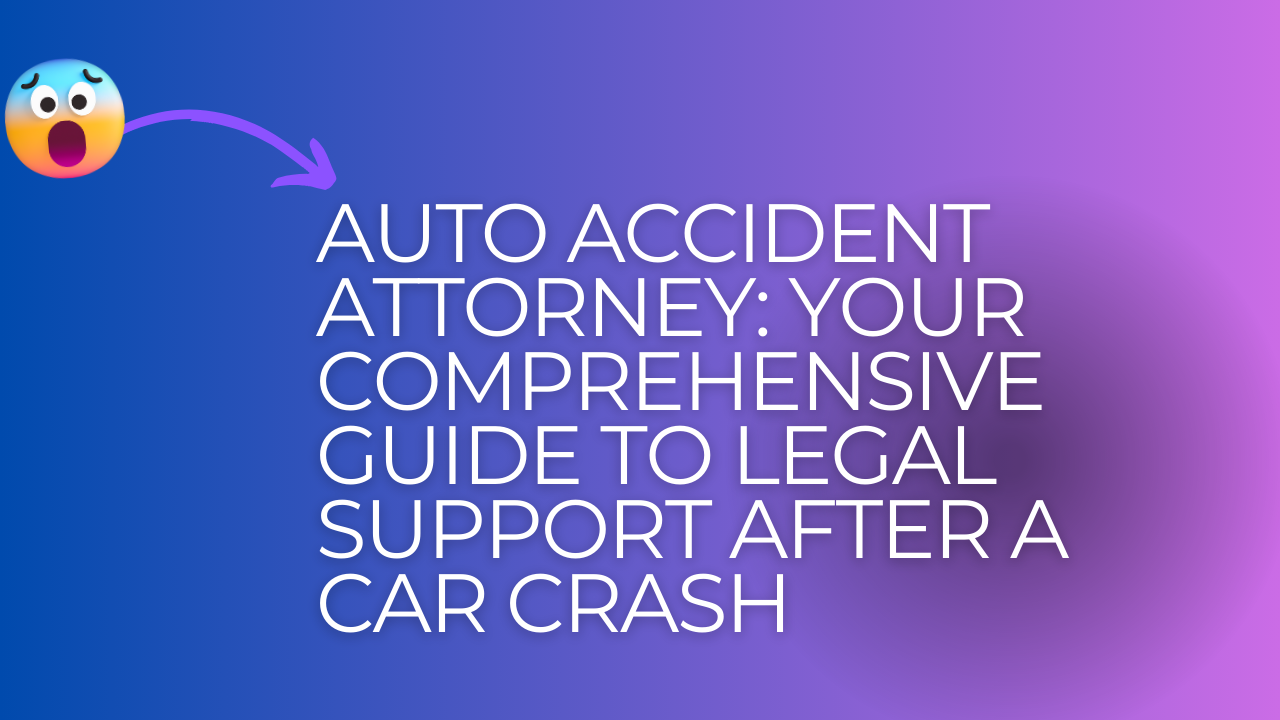Introduction
Car crashes are an unfortunate reality that can have devastating consequences for those involved. Understanding the role and services of a car crash law firm is crucial for victims seeking justice and compensation. This article provides a detailed overview of what these specialized law firms do, the types of cases they handle, and how they can help victims navigate the complex legal landscape following an accident.
Types and Categories of Car Crash Law Firms
Car crash law firms vary widely in their focus and scope. Here are some common types:
Personal Injury Law Firms
These firms handle a wide range of injury cases, including car crashes. They offer comprehensive services to help victims secure compensation for their injuries.
Specialized Car Accident Law Firms
These firms focus exclusively on car accidents, providing specialized knowledge and experience in handling such cases.
Large vs. Small Law Firms
Large firms often have more resources and a broader range of services, while small firms may offer more personalized attention.
National vs. Local Law Firms
National firms have a wider reach and may handle cases across the country, while local firms are deeply familiar with the specific laws and regulations of their area.
Services Provided by Car Crash Law Firms
Car crash law firms offer a variety of services to support their clients, including:
Legal Consultation
Initial consultations help victims understand their rights and the legal process.
Case Investigation
Thorough investigations are conducted to gather evidence and build a strong case.
Negotiation with Insurance Companies
Lawyers negotiate with insurance companies to ensure fair settlements.
Court Representation
If a case goes to trial, law firms provide skilled representation in court.
Post-Trial Services
These include ensuring that judgments are enforced and handling any appeals.
Common Car Crash Injuries
Car crashes can result in a range of injuries, some of which may have long-term impacts:
Physical Injuries
These include fractures, head injuries, spinal cord injuries, and internal injuries.
Emotional and Psychological Trauma
Accidents can lead to PTSD, anxiety, and depression.
Long-term and Permanent Disabilities
Some injuries may result in lasting disabilities, affecting the victim’s quality of life.
Causes and Risk Factors of Car Crashes
Several factors contribute to car crashes, including:
Driver Error
Speeding, drunk driving, and distracted driving are common causes.
Weather Conditions
Rain, snow, and fog can increase the risk of accidents.
Road Conditions
Poorly maintained roads and construction zones can be hazardous.
Vehicle Defects
Mechanical failures and design flaws can lead to crashes.
Distracted Driving
Using mobile phones or other distractions can cause accidents.
Steps to Take After a Car Crash
Knowing what to do immediately after a crash is crucial:
Immediate Actions
Ensure safety, check for injuries, and call emergency services.
Documentation and Evidence Collection
Take photos, gather witness statements, and obtain a police report.
Seeking Medical Attention
Even if injuries seem minor, it’s important to get a medical evaluation.
Contacting a Car Crash Law Firm
Early legal consultation can help protect your rights and strengthen your case.
Legal Process for Car Crash Claims
The legal process involves several steps:
Filing a Claim
This initiates the legal process.
Investigation and Discovery
Both parties gather evidence and information.
Settlement Negotiations
Many cases are resolved through negotiation before reaching court.
Trial Process
If no settlement is reached, the case goes to trial.
Appeals
Either party may appeal the court’s decision.
Factors Affecting Car Crash Claims
Several factors can influence the outcome of a claim:
Severity of Injuries
More severe injuries often result in higher compensation.
Insurance Policy Limits
The at-fault party’s insurance limits can cap the compensation.
Evidence Strength
Strong evidence supports better outcomes.
State Laws and Regulations
Laws vary by state and can affect the claim.
Fault Determination
Establishing fault is crucial for compensation.
Role of Insurance Companies in Car Crash Cases
Insurance companies play a significant role in the claims process:
Types of Insurance Coverage
Different policies cover various aspects of a car crash.
Insurance Claims Process
Understanding the process helps manage expectations.
Common Tactics Used by Insurance Companies
Insurers may use tactics to minimize payouts.
How Law Firms Counter Insurance Companies
Experienced lawyers know how to counter these tactics.
Choosing the Right Car Crash Law Firm
Selecting the right law firm is critical:
Experience and Expertise
Look for firms with a strong track record in car crash cases.
Reputation and Reviews
Client reviews and professional reputation matter.
Success Rate
High success rates indicate effective legal representation.
Communication and Availability
Choose a firm that communicates clearly and is available when needed.
Fee Structure
Understand the firm’s fees and payment structure.
Case Studies of Car Crash Lawsuits
Examining real cases provides valuable insights:
High-profile Cases
These cases can set precedents and highlight key legal principles.
Typical Case Outcomes
Understanding common outcomes helps set realistic expectations.
Lessons Learned
Learn from past cases to better navigate your own.
Expert Insights
Gaining insights from experts can be invaluable:
Quotes from Legal Experts
Expert opinions can clarify complex legal issues.
Advice from Experienced Attorneys
Practical advice helps avoid common pitfalls.
Common Mistakes to Avoid
Learning from others’ mistakes can strengthen your case.
Preventive Measures for Car Crashes
Taking steps to prevent crashes is essential:
Safe Driving Tips
Follow speed limits, avoid distractions, and drive defensively.
Vehicle Maintenance
Regular maintenance can prevent mechanical failures.
Awareness and Education Programs
Participate in programs that promote safe driving.
Technological Innovations in Car Crash Prevention
Technology plays a crucial role in enhancing road safety:
Advanced Driver Assistance Systems (ADAS)
These systems assist with braking, lane keeping, and more.
Autonomous Vehicles
Self-driving cars aim to reduce human error.
Crash Detection and Notification Systems
These systems alert emergency services in the event of a crash.
The Future of Car Safety Technology
Ongoing innovations promise to further reduce accident rates.



